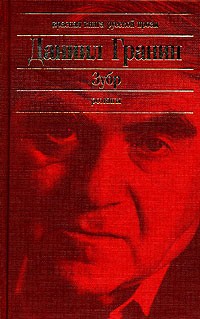One of the main questions of Week 2 seems to be: Will MOOCs replace traditional high school education? Which role will they have in the future? In articles represented in Week 2 resourses we can see different opinions on this topic, and there are certain areas that I find very important for these questions.
In general: I don't think that MOOC will or can replace traditional high-school education in its today form. But this question is closely related to the structure of modern (Western) society itself and the role of high school in this society.
Let's see an example of difference between MOOC and traditional form of education. Actually only few of the students that join MOOC in the beginning finish it till the end. As I remembet, in the courses I took part earlier it was about 1/5 of all students who stayed till last week. In university or colledge we will see the opposite: most of students who start education finish it, with better or worse grades, but finish. I think in most cases it is because of some kind of social pressure. Let's imagin the student who understands after first year of education that he made wrong choice. Maybe his parents want him to get specialization. Or he passed really difficult exams to gain an opportunity to learn for free. Or he paid huge amount of money to study in this maybe very prestigious place. In most of such cases, I think, a student will continue to study although he or she don't like this college or this area of knowledge. In MOOC the student will just leave the class, the only problem will be that he wasted some time to understand that he don't like the course.
The other side of the coin is, that people need more motivation to finish a MOOC because a higher amount of freedom. But I would prefer the situation when lazy or lesser motivated students have some problems, becasue this i
s their problems and they will need sometimes learn how to be motivated. It's better than the situation, when we have lots of specialists who don't like their profession or aren't working in the field where they have high education. Because it will be the problem not only of this students, but of
other people too: who wants to send the children at school to a teacher who don't like or even hates to teach?
I think, MOOC can play a very important role in vocational guidance and getting second speciality. When you already know "how to study" and want to broaden you ights or try yourself in totally new field, it's what you need. Free, open, study if you like etc.
Can MOOC give something more than such "Introduction for a beginner"? In certain cases yes. There can be courses that involve practical experience of writing, reading, discussingi, that has a value in itself. But what about me, I feel that there is certain level of complexity, of how deep I would like to study particular topic, when I will want to have personal contact with an specialist - professor, teacher etc., to discuss certain topics that are interesting personally for me.
I think, the discussions about MOOCs show the problems which exist in traditional educational system. I think high education and getting a degree is very overestimated in modern society (I would be glad if somebody will tell in the comments, how it's really in European countries or in USA, here I speak based mostly on what I know about situation in Russia). When something is
overestimated, people start trying to cheat the system (For example, when the win in the run is overestimated, runner can start to use forbidden stimulants to win). It was be revealed recently, that some of Russian officials of high level have fake degrees - some of them have plagiarized their degree works. Such things happen sometimes here and there, showing us, that for some people having a paper is more important than having knowlege. MOOCs are useless for such people, because it's about knowledge, not about degree.
I hope that people in the future will be able to create a system where knowlege and real skills are on the first place. In such sociaty the entire system of education will be different, and MOOCs will have bigger place in it.
(I'll leave my hopes related to technology and educcation for one of the next post, because I plan to make a short descruption of my own utopia)
 Писать о “Зубре” сложно, вероятно, именно из-за невероятной цельности образа, стоящего в центре этой книги – сложно говорить о книге, а не о личности. Пересказывать исторические факты, о которых идёт речь, смысла не вижу, к тому же, о них уже достаточно сказано в других рецензиях. Восхищает, как Гранину удаётся создать цельный образ учёного, передав при этом и те проиворечия, которые были в его характере – эти противоречия тоже как бы становятся частью неделимого целого. Очень ценны интонации живой речи, которые сохраняются в тексте – Гранин пишет, что он пользовался и магнитофонными записями, и непосредственность разговоров ему удалось перенести и на бумагу.
Писать о “Зубре” сложно, вероятно, именно из-за невероятной цельности образа, стоящего в центре этой книги – сложно говорить о книге, а не о личности. Пересказывать исторические факты, о которых идёт речь, смысла не вижу, к тому же, о них уже достаточно сказано в других рецензиях. Восхищает, как Гранину удаётся создать цельный образ учёного, передав при этом и те проиворечия, которые были в его характере – эти противоречия тоже как бы становятся частью неделимого целого. Очень ценны интонации живой речи, которые сохраняются в тексте – Гранин пишет, что он пользовался и магнитофонными записями, и непосредственность разговоров ему удалось перенести и на бумагу.